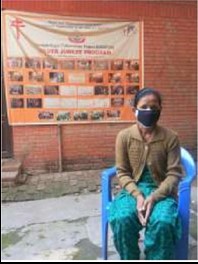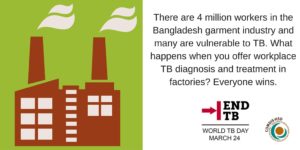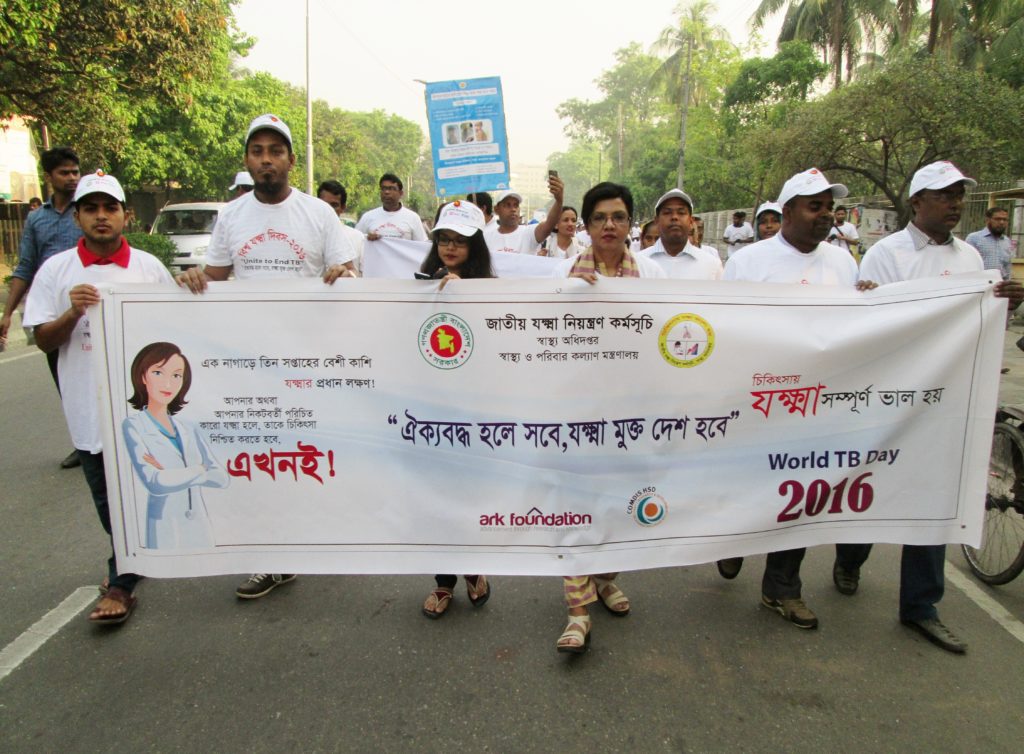This year the World Health Organization (WHO) is calling on countries to ‘Unite to End TB’. Ending TB by 2030 is a target of the Sustainable Development Goals and a programme priority for COMDIS-HSD and our partners.
More than 4,000 people lose their lives each day to this leading infectious disease. Many of the communities that are most burdened by tuberculosis are poor, vulnerable and marginalised.
WHO has highlighted some important progress in the 30 countries with the highest TB burden. It says that a number of countries are strengthening the strategic agendas of their TB programmes by adopting newer tools, extending access to care and linking with other parts of government to reduce the financial costs for patients.
At COMDIS-HSD we are contributing in all these areas and on World TB Day 2016 we’re taking the opportunity to share more widely some of our research and key findings:
Video briefings
- Senior researcher Sudeepa Khanal talks about treatment challenges for multi-drug resistant TB (MDR-TB) patients in Nepal.
- Prof Xiaolin Wei talks about the role of family members in supporting MDR-TB patients in China: View it in English or View it in Mandarin
Blog
Research evidence
- Policy brief: Improving treatment for multi-drug resistant tuberculosis patients – lessons from Shandong Province, China
- Research brief: Improving access to TB care for garment factory workers using Public Private Partnerships (PPPs) in Bangladesh
- Case study: Using PPPs to influence healthcare policy in Bangladesh – lessons from a TB project

A patient featured in HERD’s special series on TB: “I have not only been helped economically but psychologically too.”
In addition to their ongoing TB research, our partners are also taking active parts in this year’s World TB Day activities. HERD Nepal is taking the TB message out to the community by sharing material and talking about the stigma related to TB. See their full report of the day’s activities in Nepal.
HERD have also produced a special series of articles and insights celebrating Nepal’s efforts towards tuberculosis control, particularly over the last 10 years.
The series includes some interesting personal perspectives from policy makers, medical practitioners and patients about how they view TB interventions and services.
One patient featured in the series was diagnosed with MDR-TB but was concerned that she could not afford the lengthy 20-month treatment. However, doctors referred her to a facility where she is receiving free MDR-TB treatment and hostel accommodation.
“I have not only been helped economically but psychologically too. When I first came here, I was not sure what was going to happen but with the constant support from the staff and other patients, I realised I was in safe hands. Now I am confident I will stay here and receive the treatment and return home fully recovered from the disease.”
In Bangladesh, ARK Foundation joined up with their partners at the National TB Control Programme, marching with banners in the lively World TB Day rally in Dhaka.
The day’s activities were covered by a number of electronic and print media. Dr Md Quamrul Islam, Director of Mycobacterium Disease Control (MBDC) and Line Director of TB and Leprosy thanked all partner NGOs for their active participation in observing World TB Day 2016.



